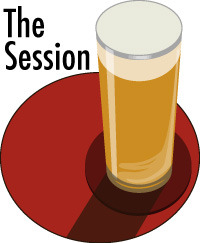Gary threw his two cents in and I hooked my pal Jordan up with my other pal Jordan who wrote a “Jordan quotes Jordan” article on the proposed changes to Canada’s federal government’s regulation on the nature of beer. As Jordan the journalist (“JTJ”) pointed out there is one aspect of the proposed changes which appear sensible but, at least for me, are a critical problem:
No longer would beer be required to “possess the aroma, taste and character commonly attributed to beer” or be categorized into different styles or types like ale, stout, porter and malt liquor. Instead, officials are proposing to set limits on sugar content and simplify language around the use of additives that would define what is a beer.
Now, as might be argued a rarity, the actual Regulatory Impact Analysis Statement to my mind actually states the intention a bit more clearly:
In addition, the current requirement to “possess the aroma, taste and character commonly attributed to beer” would be removed in recognition that different beer styles or types have different attributes. This element is proposed to be replaced in part by a limit in the percentage by weight of residual sugar in final products. This change would maintain the integrity of beer and provide a more objective measurement.
Sadly, this proposed change is based on a misunderstanding of the use of the word “commonly” in the regulation. See, it can be taken to mean that (i) the attributes have to be common to all beer but I read the line to mean that (ii) people commonly understand that the attributes of the beverage before them are included in the concept of beer. Consider this twitter exchange this morning between Jeff Alworth and John Holl. Holl had posted a photo of a glass of something he described in this way:
…the strawberry rhubarb wheat topped with the same beer (plus extra strawberries) pumped through a slushy machine.
Jeff asked in response whether in “…a blind tasting, could you have identified it as a beer?” and John’s response was interesting:
Yes. There is enough hop content, and the aromatics are on point. The finish is bone dry. There’s a lot of runway to play with this style and from social media posts there’s a lot of breweries joining the fold each day.
Rather than chastising Jeff for being a luddite and not being hip with the cool kids’ juice, John took the observation seriously and set out some attributes that he would commonly associate with beer: “enough hop content” and on point aromatics. Fabulous. He entirely understood the point being made.
The current wording of the regulation also understands the point. Just this week in my lawyering day job I solved a rather large problem by determining whether something was a “significant” deviation from “normal” – not all that different from the idea of establishing what “commonly” means. I had no difficulty as it required me to review real life examples and explain degrees of things as well as expectations of things. Easy. Words like this pose no problem to understanding.
Further, words like this are not locked in. By this I mean the law can reflect reasonable expectations in the future as long as the legal drafts-person does not attempt to tie down the wording to an understanding that exists in the present. As John Holl noted, there’s “a lot of runway to play with this style.” His only fault is defaulting back to the until recently relevant concept of style which has only realistic application to the beers from perhaps the late 1980s to perhaps 2014-15 at the latest. Too many walls have been broken down since then to force the square peg of style into the round hole of beer.
What John might better have said was there is a lot of play within beer. Beer is in fact great like that. And people can be trusted to know what is and what is not a beverage we can commonly include in the concept of beer. As soon as you lay down more specific attributes you exclude anything which does not have those attributes. One of the things that ended the concept of style – in addition to the insane exponential expansion of style categories – was the ever tightening nose of attribute allocated to each of those dizzying styles. The current regulation wording avoids that nightmare. The proposed wording runs towards it, arms wide open. JTJ actually quoted Jordan the Beer Writer (JTBW) on an associated point:
The most important thing you could do if you’re a craft brewer would be to get a handle on how to add ingredients these lists,” said Jordan St. John, co-author of The Ontario Craft Beer Guide. “The labelling component and making sure people understand what they’re getting — that’s really beneficial for the consumer. It’s just that getting there is going to be a bit of a pain.
Jordan is saying to brewers if your favorite ingredient is not on the list, it is out. My argument is that if there is a kitchen sink clause allowing for beer to be what is commonly understood as beer – not exclusively or even primarily – then the beer is in fact beer. That is good law.
This will be the gist of my comment back to the Canadian Food Inspection Agency (CFIA). You can make comments, too, by following the instructions on the CFIA website here. Go ahead. Participate in democracy. About beer. Do it.



